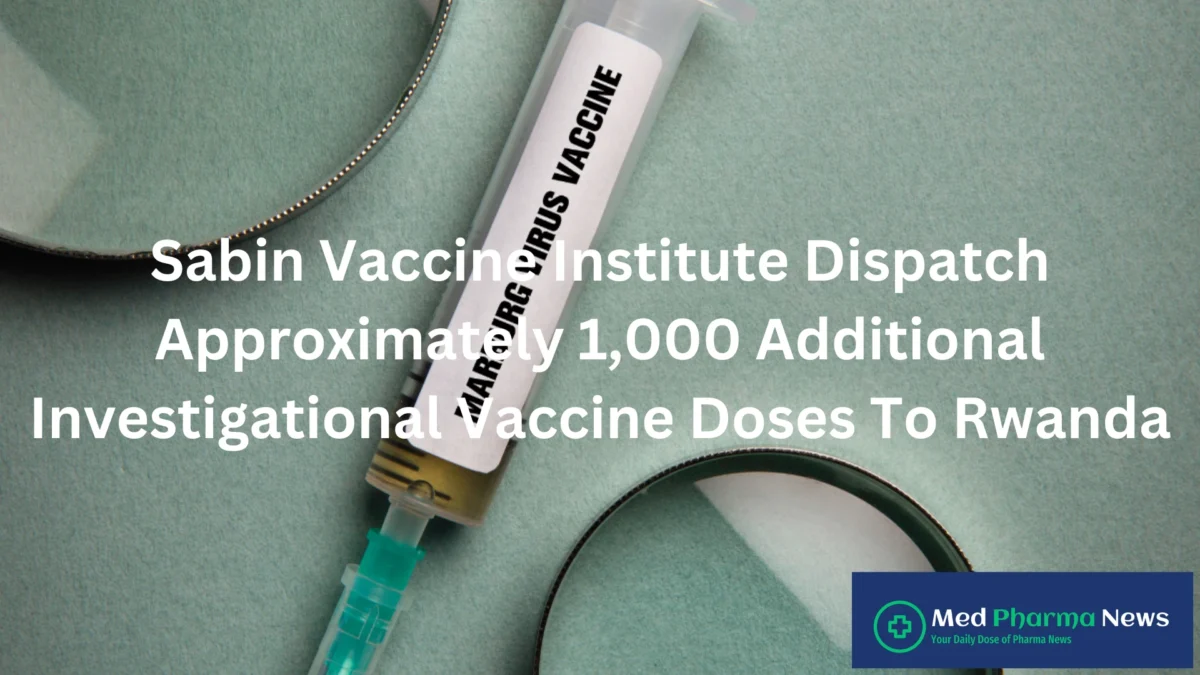The Sabin Vaccine Institute has deployed about 1,000 doses of an investigational Marburg virus vaccine for a randomized clinical trial. Sabin’s mission is to translate vaccine research into immediate, real-world solutions. This Marburg virus vaccine trial is a part of an open-label study in high-risk populations, focusing on both vaccine safety and efficacy.
The ongoing Marburg virus outbreak in Rwanda has presented significant public health challenges, necessitating rapid responses and innovative solutions. The Sabin Vaccine Institute, a leader in vaccine development, is taking decisive action by deploying additional investigational vaccine doses to combat this deadly disease.
Overview of the Marburg Virus Outbreak
Since the outbreak was declared on September 27, Rwanda has confirmed 66 cases of Marburg virus disease, with 15 reported deaths. The case-fatality rate stands at approximately 23%, significantly lower than mortality rates seen in previous outbreaks, which have reached as high as 88%. This decrease in mortality rates, while encouraging, underscores the urgent need for effective intervention strategies.
The Marburg virus, a member of the filovirus family, presents severe health risks with symptoms emerging between 2 and 21 days post-infection. As of now, there are no approved Marburg virus vaccines or treatments available, making the rapid development and distribution of Marburg virus vaccine crucial in controlling the outbreak.
Sabin Vaccine Institute’s Commitment to Vaccine Development
In a concerted effort to address the Marburg outbreak, the Sabin Vaccine Institute has dispatched approximately 1,000 additional investigational vaccine doses for a randomized clinical trial within the framework of an open-label study. This proactive approach is part of Sabin’s broader mission to translate research into effective real-world solutions.
Trial Design and Implementation
Under an updated protocol sponsored by the Rwanda Biomedical Center, the trial will include approximately 1,000 at-risk individuals, notably mine workers, who are particularly vulnerable to zoonotic transmissions. Participants will be randomized to receive either the Marburg virus vaccine immediately or after a 21-day delay, corresponding with the end of the disease’s incubation period. This innovative trial design aims to gather crucial data on the vaccine’s safety, immunogenicity, and efficacy.
The genomic sequencing of the initial case has indicated a zoonotic origin, with strains closely related to those found in fruit bats residing in mines. This finding reinforces the importance of targeted vaccination strategies in high-risk populations.
Progress and Collaborative Efforts
To date, over 1,700 Marburg virus vaccine doses have been delivered to Rwanda, demonstrating the swift logistical capabilities of Sabin and its partners. The first shipment of Marburg virus vaccine arrived just nine days after the outbreak was declared, showcasing a remarkable response time in the face of a public health crisis.
Sabin continues to work closely with its contract manufacturer, ReiThera, ensuring that Marburg virus vaccine doses are efficiently prepared and shipped. Collaboration with Rwandan health officials has been integral to adapting the current vaccination protocol, emphasizing the importance of local expertise in outbreak response.
Addressing Vaccine Demand and Safety Concerns
Rwandan health officials, including the Minister of State for Health, Yvan Butera, have highlighted the critical need for more Marburg virus vaccine doses to address the outbreak effectively. Sabin’s ongoing dialogue with local health authorities demonstrates a commitment to meeting the needs of those affected.
Despite the investigational status of Marburg virus vaccine, initial trials in Uganda and Kenya have shown promising results, with no safety concerns reported. In non-human primates, the vaccine has induced rapid immunity within one week, and early Phase 1 trials in humans have demonstrated both safety and immunogenicity.
Future Implications for Public Health
As the Marburg outbreak continues to unfold, Sabin’s development program for the Marburg virus vaccine remains a pivotal component of the global health response. Interim results from ongoing trials are expected in the coming year, with plans for a U.S.-based trial set for 2025. This long-term commitment to vaccine research aligns with global efforts to enhance preparedness for emerging infectious diseases.
Additionally, Sabin’s partnership in the MARVAC initiative, coordinated by the World Health Organization (WHO), highlights the importance of international collaboration in vaccine development and deployment. Supported by the Biomedical Advanced Research and Development Authority (BARDA), which has committed $235 million to advance vaccine research, Sabin is poised to play a crucial role in addressing future outbreaks of Marburg and similar viruses.
Conclusion
The response to the Marburg virus outbreak in Rwanda exemplifies the critical importance of rapid vaccine development and distribution in controlling infectious diseases. The Sabin Vaccine Institute’s ongoing efforts to provide investigational vaccines, in collaboration with local health officials and international partners, represent a significant step forward in combating this public health threat. As we continue to monitor the situation, the commitment to scientific rigor and community engagement remains paramount in ensuring the safety and efficacy of vaccine interventions.



